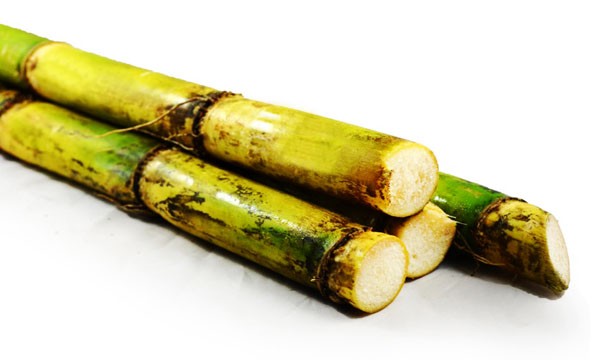The Scientific Research Behind Cane Sugar Processing: How Sweetness is Refined
The Scientific Research Behind Cane Sugar Processing: How Sweetness is Refined
Blog Article
A Detailed Overview of the Wellness and Economic Ramifications of Cane Sugar Handling on Local Areas
Walking cane sugar handling plays an essential role in forming the financial landscape of regional communities, offering employment possibilities and boosting supplementary industries. The health implications linked with high sugar intake can not be ignored, as they contribute to rising prices of weight problems and diabetes.
Financial Advantages of Walking Stick Sugar Processing
Walking cane sugar handling provides significant financial benefits that expand past the immediate farming market. The farming and processing of sugarcane create various job possibilities, from farming to production and distribution. This employment generation not only supports neighborhood economic situations yet additionally fosters area advancement by supplying stable revenue sources for family members.
Moreover, the sugar market stimulates secondary companies, including transport, equipment supply, and packaging solutions (Cane Sugar Processing). As these fields grow, they add to a more durable economic structure, enhancing general area strength. The export potential of refined cane sugar even more magnifies financial advantages, positioning areas as competitive gamers in international markets
Investment in contemporary handling facilities can cause increased efficiency and efficiency, consequently lowering waste and optimizing resource use. This shift not only benefits the regional economy however additionally sustains sustainability initiatives by lessening environmental impacts.
Moreover, the earnings generated from cane sugar processing can be reinvested in regional facilities, education and learning, and medical care, advertising all natural community growth. Generally, the financial advantages of cane sugar processing are multifaceted, offering a foundation for withstanding prosperity in agricultural regions.
Health Dangers Related To Sugar Usage
Excessive sugar intake presents substantial wellness dangers that warrant severe attention. High consumption of added sugars, particularly from refined drinks and foods, has been connected to countless health difficulties.
Additionally, high sugar consumption is associated with heart disease. Raised blood sugar level degrees can lead to insulin resistance, a precursor to numerous heart-related concerns. Furthermore, sugar can have detrimental impacts on dental wellness, leading to dental caries and gum condition, as germs in the mouth thrive on sugar, creating acids that deteriorate tooth enamel.
Additionally, emerging research study recommends a potential web link in between high sugar intake and mental wellness problems, such as anxiety and anxiousness. As communities come to grips with these health threats, it becomes necessary to promote recognition and encourage healthier dietary options. Dealing with sugar intake is crucial not just for specific health and wellness yet additionally for the overall wellness of neighborhood communities, emphasizing the requirement for thorough public health and wellness methods.
Ecological Influences of Sugar Production
Often ignored in conversations regarding sugar's ramifications is the substantial environmental influence of sugar manufacturing. The growing of sugarcane often necessitates comprehensive land use, leading to deforestation, loss of biodiversity, and disruption of local environments. The conversion of woodlands and marshes right into sugar plantations can result in habitat damage, threatening various species and changing environmental balance.
Furthermore, sugar production is resource-intensive, consuming considerable amounts of water for watering. This can bring about exhaustion of local water sources, adversely influencing both farming methods and neighborhood access to tidy water. Furthermore, using chemical plant foods and pesticides in sugarcane farming can contribute to dirt deterioration and water air pollution, as overflow from these chemicals enters neighboring rivers and lakes, influencing marine life and human health.
The environmental impact reaches the handling phase, where power consumption and waste generation more aggravate environmental concerns. Air air pollution from shedding sugarcane fields, along with greenhouse gas exhausts, add to environment adjustment. Because of this, the ecological implications of sugar production warrant serious factor to consider, urging stakeholders to embrace more lasting methods to minimize these unfavorable results on neighborhood ecosystems and areas.
Job Development and Neighborhood Development
The environmental obstacles posed by sugar production are often reversed by its possibility for economic advantages, especially in work creation and neighborhood development. The walking cane sugar industry serves as a substantial source of work in many rural locations, offering jobs across different ability degrees, from agricultural labor to handling and distribution functions. This employment not just supports private families but likewise adds to the overall financial vitality of local neighborhoods.
Moreover, the establishment of sugar handling centers stimulates ancillary companies, such as transport services, equipment supply, and maintenance providers. As these organizations flourish, they create additional jobs and boost local economic climates. The income produced from the sugar sector also causes boosted tax obligation revenues, which click here for more info can be reinvested into social work such as health care, framework, and education and learning development.
Moreover, the sugar market typically takes part in area growth efforts, such as supporting neighborhood schools and health and wellness programs, thus enhancing the high quality of life for residents. By fostering solid community ties and advertising financial growth, the cane sugar handling sector plays an important role in uplifting regional populaces, making it an essential part of lasting growth methods in sugar-producing areas.
Balancing Wellness and Economic Growth
In browsing the complexities of walking stick sugar processing, a critical difficulty exists in balancing health and wellness considerations with financial development. The sugar industry considerably adds to local economies by producing work, boosting related sectors, and boosting tax obligation profits. However, the health ramifications associated with too much sugar consumption can result in chronic illness such as obesity, diabetes mellitus, and cardiovascular problems, which can problem public wellness systems and decrease labor force efficiency.

Additionally, governing frameworks can play a critical function in guiding sector techniques towards more lasting and health-conscious methods. By cultivating cooperation between federal government bodies, health organizations, and the sugar industry, communities can browse the dichotomy of health and wellness and economic growth, making certain that the benefits of walking stick have a peek at this site sugar handling are equitably shared while focusing on public wellness.
Verdict
To conclude, the processing of cane sugar presents both significant financial benefits and notable health risks for local neighborhoods. While it cultivates work production and boosts local development, the affiliated wellness problems, specifically relating to excessive weight and diabetes mellitus, demand a mindful balancing act. By promoting liable usage and investing in area education and learning and sustainable practices, it is possible to make the most of economic benefits while reducing unfavorable health effects, consequently ensuring a healthier future for neighborhood populaces.
Additionally, sugar can have harmful effects on dental health and wellness, resulting in cavities Read Full Article and gum disease, as microorganisms in the mouth prosper on sugar, creating acids that deteriorate tooth enamel.
Addressing sugar intake is crucial not just for individual wellness yet likewise for the overall wellness of local areas, stressing the requirement for comprehensive public health and wellness techniques.
Regularly forgotten in discussions concerning sugar's implications is the substantial environmental impact of sugar manufacturing. The health effects associated with excessive sugar intake can lead to chronic illness such as obesity, diabetic issues, and cardiovascular problems, which can worry public health and wellness systems and diminish workforce productivity.

Report this page